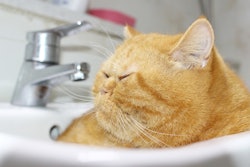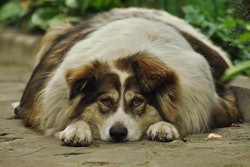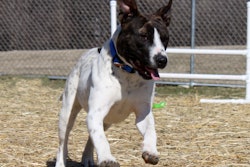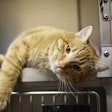
With the humanization of pets has come the humanization of pet illness. Like people in the United States, obesity-related health problems now outweigh the dangers of malnutrition and starvation for dogs and cats. Pet obesity has been an ongoing problem in the United States and other economically developed regions. However, pet owners may be largely unaware that there is a problem, at least in their own homes, despite years of warnings. The Association for Pet Obesity (APOP) surveyed pet owners and veterinary professionals in winter 2023. The survey included 527 U.S. pet owners and was conducted from October to December 2023.
Only 28% of cat owners and 17% of dog owners acknowledged their pets were overweight, compared to 84% of dog owners and 70% of cat owners who believed their pets' body condition was healthy. Those figures don’t match real pet obesity rates by a long shot. In APOP's 2022 survey, veterinary professionals classified 59% of evaluated dogs as overweight or obese, a 3% increase over 2018. In 2022, vets observed 61% of evaluated cats were overweight or obese. In the 2018 and 2017 surveys, 60% of cats fell into the overweight or obese range.
“Over the past two decades, we have consistently observed a significant discrepancy between the prevalence of pet obesity and pet owners' recognition of this issue,” Ernie Ward, DVM, founder and president of the Association for Pet Obesity Prevention (APOP) said in a report on the winter survey. “Pet owners reporting that ‘pet obesity is a problem, but not for my pet’ continues to be a communication hurdle for veterinary professionals. Awareness of an unhealthy body condition is the first step in treating the disease.”
Despite this lack of recognition, many pet owners reported efforts to address their pets’ weight. In the survey, 63% of dog owners and 45% of cat owners stated they had attempted to help their pets lose weight. However, a smaller percentage had put their pets on therapeutic weight loss diets, with 16% of dog owners and 24% of cat owners trying such diets. Compounding the issue, many pet owners admitted to frequent treat-giving habits: 58% of dog owners and 12% of cat owners gave treats more than once a day, while an additional 24% of dogs and 18% of cats received treats at least once daily. However, some took the opposite approach, with 30% of cat owners and 4% of dog owners claiming to restrict treats entirely.
Veterinarians and pet obesity communication
On the one hand, 84% of dog owners and 94% of cat owners acknowledged pet obesity as a significant health issue. Yet, only 43% reported that their veterinarian discussed their pet’s optimal weight or body condition annually. This indicates a missed opportunity for veterinary professionals to address a pet’s body condition during yearly examinations, Ward wrote.
One reason veterinarians might avoid discussing weight issues is the fear of upsetting the pet owner. The survey found that 84% of veterinary professionals had encountered pet owners who appeared embarrassed or angry when told their pet was overweight. In contrast, only 12% of pet owners reported feeling uncomfortable or embarrassed when a veterinarian mentioned their pet’s need to lose weight. In fact, 76% of pet owners felt their veterinarian would be comfortable discussing their pet’s obesity, with only 4% believing their veterinarian would be uncomfortable.
“Pet owners consistently report being interested in their pet’s body condition,” Ward said. “Unfortunately, many veterinary professionals continue to worry their clients will be upset if obesity is mentioned. This reveals an opportunity for better communication training, patient support tools, and treatments.”
Pet owners claimed they rarely shared their own human food or snacks with their pets. About 25% of dog owners and 53% of cat owners stated they never shared their food, while 33% of dog owners and 30% of cat owners reported rarely sharing.
As World Pet Obesity Week approaches, from October 7 to 13, 2024, APOP and the World Pet Obesity Association will conduct their biennial pet obesity prevalence survey to shed more light on this critical issue and promote healthier pet lifestyles.
 created by Tim Wall using DALL-E 3
created by Tim Wall using DALL-E 3
















